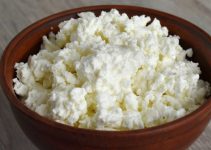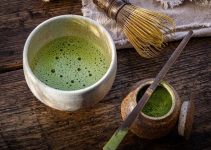Calcium is a mineral that plays a fundamental role in the health of the body.
In addition to its ability to maintain bone health, it is also essential for the muscles for regulating blood pressure, nerve transmission, and blood clotting.
The daily recommendation for consumption is 1,000 mg daily in adults, 1,200 mg in those over 50, and 1,300 in children.
However, many do not comply with these recommendations. Some people don’t because they are vegan.
The good news is that several vegetables provide high amounts of calcium.
1. Soy Foods
Soybeans contain a lot of calcium. In fact, a cup of cooked soybeans contributes 18.5% of the daily value. Also, the same amount of edamame (immature soybeans) offers around 27.6%.
On the other hand, a serving of 100 grams of tempeh covers 11% of the daily value, while natto provides twice the amount.
2. Beans, Peas, and Lentils
Besides being rich in fiber and protein, beans and lentils are also rich in calcium.
These are your calcium values:
- Lentils: 4% of the Daily Value (DV).
- Kidney beans: 7% of the DV.
- Chickpeas: 9% of the DV.
- Black beans: 11% of the DV.
- Navy Beans: 13% of the DV.
- White Beans: 13% of the DV.
- Winged beans: 26% of the DV.
These foods also contain other minerals such as zinc, iron, magnesium, and potassium. However, they have antinutrients such as phytates and lectins that reduce the body’s ability to absorb nutrients.
To reduce their antinutrients, you can ferment them or soak them.
These foods, in addition, reduce the levels of bad cholesterol (LDL) and reduce the risk of diabetes and heart disease.
3. Certain Nuts
All nuts contain calcium. But the ones that have the most are almonds since they provide 97 mg in 1/4 cup, that is, 10% of the DV.
Additionally, nuts are rich in fiber, healthy fats, and protein sources.
Eating nuts regularly helps you lower blood pressure, lose weight, and reduce the risk of metabolic diseases.
4. Seeds
The seeds are also a good source of calcium, but their contribution depends on the variety.
For example, tahini contributes 13% of the DV for every two tablespoons, while sesame seeds only contribute 2%.
The seeds also provide fiber, protein, vitamins, and minerals. All of that makes them suitable for reducing inflammation, lowering blood sugar levels, and fighting heart disease.
5. Some Grains
Some varieties of grains also provide calcium.
For example, amaranth and teff contribute 12% of the DV in 250 grams.
Both are good sources of fiber and are very versatile to consume with any food.
6. Seaweed
Seaweed is also a good source of calcium.
For example, wakame, a type of seaweed, provides 12% of the DV in 80 grams.
Be aware that algae can have heavy metals like iodine.
While iodine is essential for the thyroid gland to function, consuming too much can be harmful. For this reason, you should consume seaweed in moderation.
7. Certain Vegetables and Leafy Greens
Green leafy vegetables provide large amounts of calcium.
Some of the vegetables richest in calcium are spinach, broccoli, cabbage, kale, Brussels sprouts, and okra.
It is noteworthy that these vegetables also provide oxalates, antinutrients that can bind to calcium in your intestine, making it difficult to absorb. In fact, according to research, the body only absorbs 5% of calcium.
One of the options to reduce oxalate levels is to boil these vegetables.
8. Some Fruit
Some fruits are also a good source of calcium.
Among the main ones are figs, oranges, and berries.
In addition, these fruits provide vitamins, minerals, and fiber.
9. Fortified Foods and Drinks
Another way to incorporate calcium is through foods that have been added industrially.
Some foods fortified with calcium are some flours, certain types of cereals, crackers, and tortillas.
As for fortified beverages, there are vegetable milk and orange juice.
For example, a cup of fortified non-dairy milk provides 30% of the DV of calcium, while a glass of fortified orange juice covers 50% of the DV of calcium.
10. Blackstrap Molasses
Blackstrap molasses is a sweetener made from sugar cane boiled three times. This provides 18% of the DV for calcium in just one tablespoon.
In addition, a tablespoon of blackstrap molasses also provides nutrients such as magnesium, manganese, iron, selenium, and vitamin B6.
As it is high in sugar, you should consume it in moderation.
The bottom line
Calcium is a fundamental mineral for the health of your bones and your muscles. At the same time, it improves the nervous and circulatory systems.
It is noteworthy that calcium is usually incorporated through dairy products, but you also have other natural options to include this mineral if you are vegan.
Many foods (legumes, fruits, vegetables, grains, seeds, nuts) contain calcium.
In addition, there are foods fortified with calcium that are also beneficial for incorporating this mineral.





